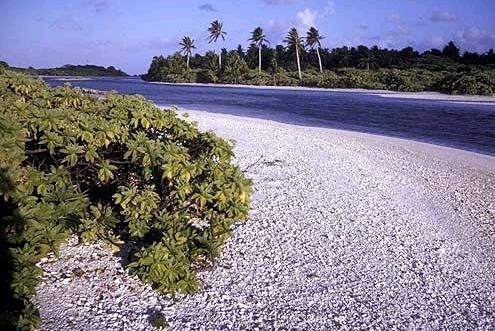 By Molly Tankersley, News Staff
By Molly Tankersley, News Staff
Up until last fall, my understanding of climate change had been a vague awareness of rising global temperatures and our impending doom, speckled with terms like “ocean acidification” and “carbon sinks.”
I had a distant, scientific appreciation of what climate change was, and what it could do, but thought very little of the impacts that would become our reality.
That changed rapidly as I read a New York Times article published last week, which reported that a leading military research organization has deemed climate change a growing national security threat and a facilitator of political conflict.
Beyond recognizing the environmental and resource-based threats that human-caused climate change poses, the report by the CNA Corporation Military Advisory Board sounded an alarm over the potential threats to global stability it will create.
As climate change-induced drought places stress on food and water resources in the Middle East and Africa, conflict over resources will exasperate existing tensions and result in violent clashes, the report predicted. The board also cautions that sea level rise will jeopardize populations in coastal areas, which will create new waves of refugees and an increased need for U.S. military services as the frequency and severity of weather events grow.
The report brought to mind a variable in the equation of climate change impact that I had not previously thought about: how we react.
As the ground beneath our feet destabilizes, will the world come together to face the changes as best we can? Or, when the water laps at our heels, will it be every nation for itself?
I found my answer in the form of one man from a tiny island nation who is singlehandedly fighting for the life he is losing to climate change.
Ioana Teitiota is from the island country of Kiribati, a nation located on the equator and southwest of Hawaii, that will be largely underwater by the end of the century, according to the Intergovernmental Panel on Climate Change. His story has gathered momentum on environmental news sources and blogs since the New Zealand Court of Appeal endorsed a ruling that denied him refugee status.
When Teitiota moved his family to New Zealand in 2007, he hoped to find asylum from the social unrest that will likely break out as the sea level rises and severe weather cycles plague Kiribati. Instead, I was shocked to find out that he and his family were sent back to the sinking island where they would “resume their prior subsistence life with dignity,” as the tribunal stated.
Dignity is hard to achieve when you are struggling to keep your head above water while neighboring nations look the other way.
What concerns me is that the court’s decision is not unfounded — refugee law simply excludes climate change victims from its definition. Teitiota may be a refugee by sociological definitions, but without being directly persecuted, he does not qualify as one.
International law is entirely lacking when it comes to protecting those displaced by climate change. Without adjusting our legal definitions, those forced to flee at the cost of a problem we have all created will go unaided.
The UN has projected that by 2020, we could have as many as 50 million environmental refugees. Whether or not we are able to point a finger at the government or a political group that displaced them, these refugees will need food, shelter and higher ground that, by legal definitions, we are currently unwilling to give.
I cannot help but fear for our future when I see how unprepared our world is to handle the social unrest, the human displacement and, ultimately, the survival needs of our vast population.
We cannot pacify our fears with denial, or justify our inaction by believing the effects of climate change have yet to hit us. They are already affecting us more than we know.
–Molly Tankersley can be reached at comments@HuntNewsNU.com.
Photo courtesy Creative Commons and Molly Tankersley.









